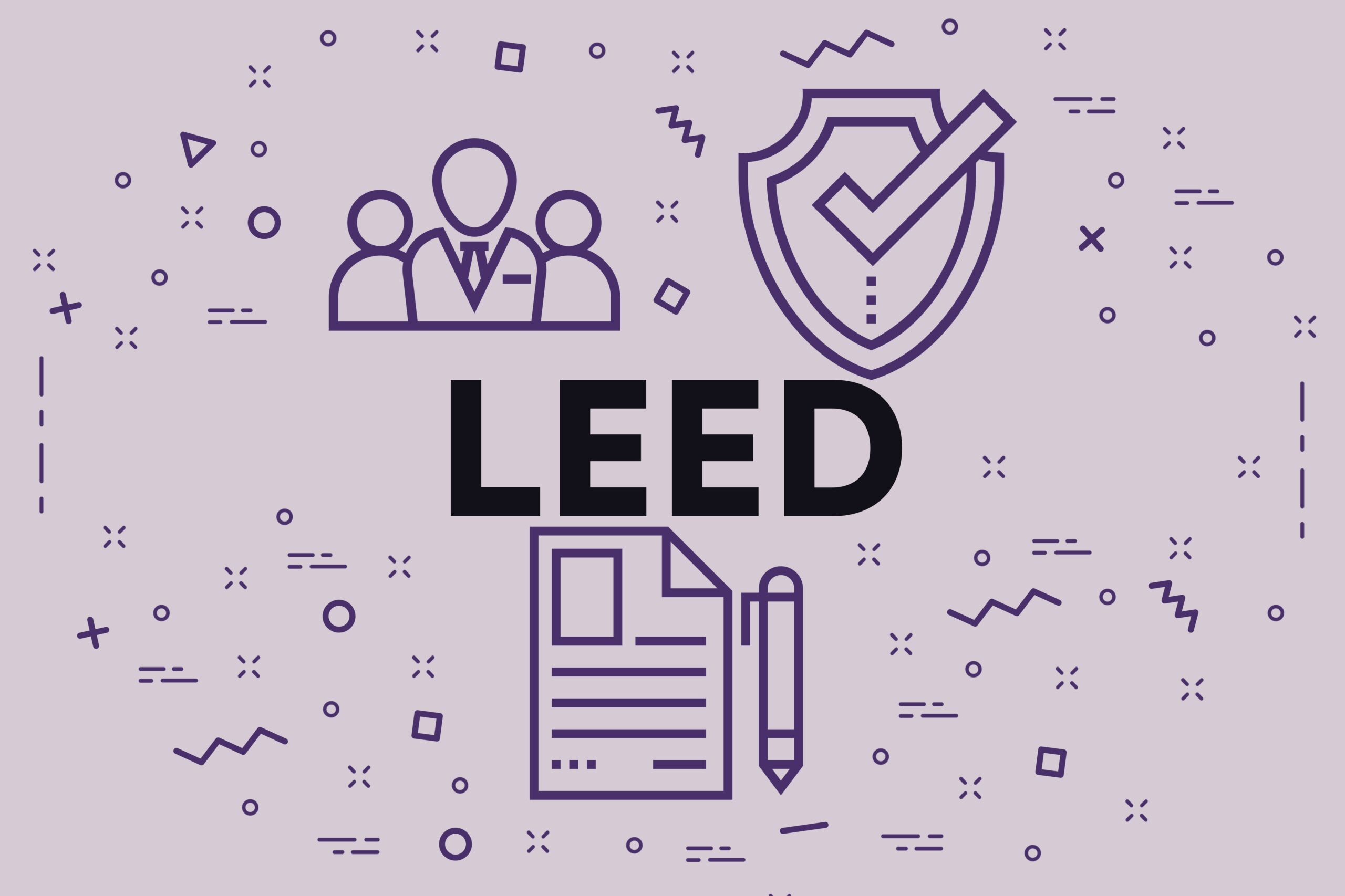Looking to build your sustainability job experience to stand out to employers? Companies, organizations, and governments are increasingly recognizing that sustainability is good for business. Many opportunities in positions such as sustainability coordinator or corporate sustainability officer are on the rise—and competition is steep. Also, most professionals who lead sustainable business projects do not have the word “sustainability” in their title or job description, so finding these positions can be counterintuitive (check out sustainability career advice from UW Advisory Board member, Beth Churchill).
There is no one-size-fits-all road map for a sustainability career. This can be equally exciting and puzzling but not impossible to crack. Look for sustainability trailblazers and mentors who have forged paths in various industries and sectors. When you know what part of sustainability you want to focus on and work in—public, private, nonprofit, education, government, entrepreneurship, just to name a few—then you can start to seek out opportunities to build experience from.
Here are six ways to do just that. (Bonus: with real-life success stories from UW Sustainable Management students!)
1. Network, engage, repeat

First, expand your sustainability job experience by finding practitioners and professionals who you aspire to work with! Sustainability professionals love to share their stories—how they got to be a sustainability practitioner or what they’re currently working on. Reach out on LinkedIn and explain your career dreams, invite them for a 30-minute virtual coffee meeting, have a discussion, ask questions, and ask to be introduced to others in their network. Not only will you learn more from someone who is in the field, but you will also build your network. In sustainability, as cliché as it may sound, a lot of it is about who you know.
Another option is to find a nonprofit or sustainability-minded organization that aligns with your interests. Many nonprofit organizations post information about volunteer opportunities on their website—often looking for enthusiastic students who have cutting-edge knowledge and awareness of what is happening in their communities. Some organizations have formal volunteer commitments that last up to a year or more that offer professional experience and an opportunity to start building your network and resume. Volunteer to serve on an advisory board for a year or two. Again, you’ll learn more about the content of the industry, establish credibility in the field, and have opportunities to expand your network. Examples of volunteer opportunities include: volunteering on sustainability boards, conferences, and events; speaking at schools; and participating in sustainability organization events (e.g., U.S. Green Building Council events).
Take Ken Holdorf, for example—while job hunting, this UW Sustainable Management graduate volunteered at the Eco-Justice Center, a farm operated solely on renewable energy. He went on to work at the Michigan Department of Environmental Quality, and currently serves as an asset protection associate at Walmart. Ken’s volunteer work served a triple purpose: It helped him gain valuable sustainability job experience, explore different roles that interested him, and confirm his passion for the work.
2. Build social and business acumen
Which qualities do hiring managers look for in sustainability applicants? Many candidate checklists are standard for good managers everywhere: people skills, the ability to drive change, and strong networking.
A recent industry survey conducted by UW Sustainable Management program manager, Dr. Amanda Goetsch, EdD, and supplementary Emsi data highlighted the following skillsets:
- Leadership and empathy
- Systems thinking and planning
- Effective communication, framing, and writing
- Financial literacy and budget management
- Project management
- Strategic planning and demonstration of successful project execution
How can you gain these interpersonal skills? Two steps: read and practice.
Wall Street Journal bestselling author, Eric Barker, has written some helpful, research-backed posts about improving interactions at work and in life, like how to read people, become a great conversationalist, and improve your body language and be more influential.
Another note: To make inroads, you need to be able to understand business priorities and effectively communicate with business-minded colleagues and peers.
RELATED: An Inside Look at a New UW Sustainable Management Course: Climate Change and Sustainability
Understanding the business world takes education and experience. To brush up on your business knowledge, listen to top podcasts for environmental business leaders.
If you’re looking for an in-depth, specialized sustainable business education, consider a bachelor’s or master’s degree in Sustainable Management.
3. Earn sustainability credentials

Networks, illustrating your drive for sustainability and corporate responsibility, and credentials go a long way. Wisconsin Online Collaboratives offers several options in the form of degrees and certificates to continue learning in this space while building your skills and knowledge. If you’re interested in specializing in a particular area of sustainability, you can pursue a certificate in Environmental Sustainability or Sustainable Enterprise, or both. These certificates can be applied toward the Bachelor of Science degree in Sustainable Management.
If you wish to continue your education beyond the bachelor’s degree level at UW, you can pursue the Sustainability and Well-being graduate certificate, which also counts toward the Master of Science in Sustainable Management.
There are more than 25 other sustainability-focused certifications that can help round out your skills or help you explore new areas of interest. These certifications are different from the certificates offered through Wisconsin Online Collaboratives because the association or governing body hosting the certification uses assessments or exams to validate that you have mastered the skills or competencies needed to achieve the credential. These certifications can be a nice complement to the education you’ll receive at UW.
If you are interested in green building or environmental design, look into Leadership in Energy and Environmental Design (LEED) credentials. To employers, a LEED credential signifies that you’re a leader in the green building movement—and that you’re committed to professional growth.
The U.S. Green Building Council offers five different LEED credential specialties: building design and construction, operations and maintenance, interior design and construction, neighborhood development, and homes.
- LEED Green Associate for individuals newer to sustainability and LEED
- LEED AP with specialty for individuals actively working on green building and LEED projects and who wish to demonstrate expertise with a specific LEED rating system
The International Society of Sustainability Professionals (ISSP) offers the following credentials:
- Sustainability Excellence Associate (SEA) for early and mid-career professionals
- Sustainability Excellence Professional (SEP) for advanced professionals
If you are interested in green building or environmental design, look into Leadership in Energy and Environmental Design (LEED) credentials. To employers, a LEED credential signifies that you’re a leader in the green building movement—and that you’re committed to professional growth.
The U.S. Green Building Council offers five different LEED credential specialties: building design and construction, operations and maintenance, interior design and construction, neighborhood development, and homes.
- LEED Green Associate for individuals newer to sustainability and LEED
- LEED AP with specialty for individuals actively working on green building and LEED projects and who wish to demonstrate expertise with a specific LEED rating system
The International Society of Sustainability Professionals (ISSP) offers the following credentials:
- Sustainability Excellence Associate (SEA) for early and mid-career professionals
- Sustainability Excellence Professional (SEP) for advanced professionals
Get Program Guide
Learn more about our 100% online degree and certificate programs.
4. Get involved with a professional sustainability association
Just like volunteering, joining or subscribing to a sustainability association is all about making connections and showing your commitment. Many associations also offer professional development opportunities via conferences, workshops, and other educational resources.
Sustainability associations can provide opportunities for mentoring, professional development, networking, career placement, and other resources. Networking, or forming connections with other industry professionals, is essential for professional success. Sustainability professionals are eager to share their experiences with others, so don’t hesitate to reach out to any of the following organizations.
As sustainability applies to almost any industry, you can likely find an organization that focuses on your interests and goals. Here are just a few:
- Wisconsin Sustainable Business Council
- World Business Council for Sustainable Development
- B Corporations
- American Sustainable Business Network
- International Society of Sustainability Professionals
- Sustainability Consortium
- U.S. Green Building Council
- Sustainable Food Trade Association
- Sierra Club
- Sustainable Brands
- GreenBiz
- American Farmland Trust
- Green Sports Alliance
- Sustainable Packaging Coalition
- Sustainable Furnishings Council
- Organic Trade Association Sustainability Council
5. Complete your capstone and/or internship with an organization you admire
 Your capstone project, which is part of both the B.S. and M.S. in UW Sustainable Management programs, are an effective way to get practical experience, make connections, and test the waters before leaping into a sustainable business career. And, it could lead to a full-time job.
Your capstone project, which is part of both the B.S. and M.S. in UW Sustainable Management programs, are an effective way to get practical experience, make connections, and test the waters before leaping into a sustainable business career. And, it could lead to a full-time job.
Research conducted in 2023 found that the majority of students who finish an internship are offered a position post-graduation.
So, how do you choose the right internship for you?
Pick your dream organization and check job boards. Or look for an opportunity that gives you the chance to wear multiple hats—perhaps at a smaller organization, startup, or nonprofit—so you can explore two or three different functional roles.
That’s what UW Sustainable Management graduate Stacie Reece did. For her capstone course, Stacie chose to complete a business internship at the nonprofit Sustain Dane. When the director of sustainable business initiative resigned, Stacie was asked to fill the role. Since then, Stacie has become the first Sustainability Program Coordinator for the City of Madison, Wisconsin.
“I gained a ton of connections to sustainable businesses,” Stacie said. “Even if I hadn’t gotten the job I have now, I am confident those connections would have led to other career opportunities.”
RELATED: Advice for Emerging Sustainability Professionals: UW Advisory Board Member Weighs In
6. Create your own path by doing
Want to transition to a full-time sustainability job? Does your company have a sustainability or corporate social responsibility (CSR) team? If so, get involved, and if not, consider starting one, pitching it as an opportunity to further engage employees and benefit the organization, and become a champion of doing business through a sustainability lens. If you’re interested in working with an organization and they don’t have an established sustainability position, reach out and start the conversation. Leverage public commitments they may have made regarding sustainability or CSR and offer to help them better establish their mark as a responsible company all while improving business. You may receive 100 “no’s” but it only takes one “yes” to begin your journey as a sustainability professional.
Opportunities for sustainable change are everywhere. Need some inspiration? Here’s how some UW Sustainable Management students made waves: One led a $1.7 million project to convert his Air Force base’s airfield lighting system to LED. Another student works at Goodwill and drastically improved the recycling program for scrap glass. A recent graduate is leading sustainability efforts at Chicago’s Field Museum.
RELATED: What Can You Do with a Sustainability Degree? Here Are Some Examples
Employers are more willing to hire sustainability professionals if they think they’re getting an innovator who can help them do business better. And, in developing sustainability projects at your current workplace, you could carve out a new position for yourself.
Want to learn how the 100 percent online UW Sustainable Management degree programs prepare graduates for impactful sustainability careers? Check out the bachelor’s degree curriculum and master’s degree curriculum, or contact an enrollment adviser at 608-262-2011 or learn@uwex.wisconsin.edu.









